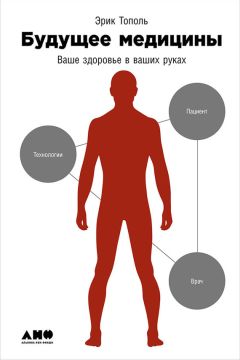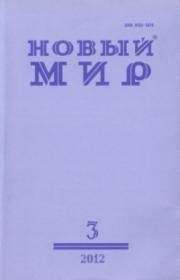Ознакомительная версия.
88a. J. Conn, "Cybersecurity Test Finds Healthcare Communications Weak Links," Modern Health– care, April 21, 2014, http://www.modernhealthcare.com/article/ 20140421/NEWS/304219940/.
88b. E. D. Perakslis, "Cybersecurity in Health Care," New England Journal of Medicine 371, no. 5 (2014): 395–397.
88c. D. J. Nigrin, "When 'Hacktivists' Target Your Hospital," New England Journal of Medicine 371, no. 5 (2014): 393–395.
88d. N. Perlroth, "Hack of Community Health Systems Affects 4.5 Million Patients," New York Times, August 18, 2014, http://bits.blogs.nytimes.com/2014/08/18/hack-of-community-health-systems-affects-4-5-million-patients/?ref=health.
89. C. Wiltz, "Report: Healthcare Cybersecurity Appalling, Legislation Not Enough," MDDI, April 7, 2014, http://www.mddionline.com/article/report-healthcare-cybersecurity-legislation-not-enough.
90. L. Miller, "The Google of Spit," New York Magazine, April 22, 2014, http://nymag.com/news/features/23andme-2014-4/.
91. Y. Erlich and A. Narayanan, "Routes for Breaching and Protecting Genetic Privacy," Nature Reviews Genetics 15 (2014): 409–421.
92. K. Peikoff, "Fearing Punishment for Bad Genes," New York Times, April 8, 2014, http://www.nytimes.com/2014/04/08/science/fearing-punishment-for-bad-genes.html.
93. B. M. Knoppers, "It's Yet to Be Shown That Discrimination Exists," New York Times, April 14, 2014, http://www.nytimes.com/roomfordebate/2014/04/14/dna-and-insurance-fate-and-risk/its-yet-to-be-shown-that-genetic-discrimination-exists.
94. Y. Joly, I. N. Feze, and J. Simard, "Genetic Discrimination and Life Insurance: A Systematic Review of the Evidence," BMC Medicine 11 (2013): 25.
95. A. S. Macdonald, "Risks Are Too Small for Insurers to Worry," New York Times, April 14, 2014, http://www.nytimes.com/roomfordebate/2014/04/14/dna-and-insurance-fate-and-risk/risks-are-too-small-for-insurers-to-worry.
96. G. Gruber, "Guarantee Privacy to Ensure Proper Treatment," New York Times, April 14, 2014, http://www.nytimes.com/roomfordebate/2014/04/14/dna-and-insurance-fate-and-risk/guarantee-privacy-to-ensure-proper-genetic-treatment.
97. M. Gymrek et al., "Identifying Personal Genomes by Surname Inference," Science 339 (2013):321–324.
98. P. Aldhous, "Genetic Mugshot Recreates Faces from Nothing but DNA," New Scientist, March 20, 2014, http://www.newscientist.com/article/mg22129613.600-genetic-mugshot-recreates-faces-from-nothing-but-dna.html.
99. O. Solon, "Algorithm Identifies Rare Genetic Disorders from Family Pics," Wired, June 24, 2014, http://www.wired.co.uk/news/archive/2014-06/24/facial-identification-genetic-disorders.
100. M. Angrist, "Open Window: When Easily Identifiable Genomes and Traits Are in the Public Domain," PLoS One 9, no. 3 (2014): e92060.
101. S. E. Brenner, "Be Prepared for the Big Genome Leak," Nature 498 (2013): 139.
102. D. Hernandez, "Selling Your Most Personal Item: You," Wired, March 27, 2013, http://www.wired.com/business/2013/03/miinome-genetic-marketplace/.
103. J. E. Lunshof, G. M. Church, and B. Prainsack, "Raw Personal Data: Providing Access," Science 343 (2014): 373–374.
104. B. Dolan, "In-Depth: Consumer Health and Data Privacy Issues Beyond HIPA A," MobiHealth– News, May 23, 2014, http://mobihealthnews.com/33393/in-depth-consumer-health-and-data-privacy-issues-beyond-hipaa/.
105. S. Fairclough, "Physiological Data Must Remain Confidential," Nature 505 (2014): 263.
1. E. Brynjolfsson and A. McAfee, The Second Machine Age (New York, NY: W.W. Norton & Co., 2013).
2. D. Hardawar, "Predictive Tech Is Getting Smarter and More Pervasive – but More Controversial, Too," Venture Beat, March 15, 2014, http://venturebeat.com/2014/03/15/predictive-tech-is-getting-smarter-and-more-pervasive-but-more-controversial-too/.
3. V. K hosla, "Do We Need Doctors Or A lgorithms?" TechCrunch, January 10, 2012, http://techcrunch.com/2012/01/10/doctors-or-algorithms/.
4. M. Kinsley, "Have You Lost Your Mind?" New Yorker, April 28, 2014, http://www.newyorker.com/reporting/2014/04/28/140428fa_fact_kinsley.
5. "A Survey of the Future of Medicine," The Economist, March 19, 1994, http://www.highbeam.com/doc/1G1-15236568.html.
6. E. Topol, "Individualized Medicine from Prewomb to Tomb," Cell 157 (2014): 241–253.
7a. M. Petronzio, "How One Woman Hid Her Pregnancy from Big Data," Mashable, April 26, 2014, http://mashable.com/2014/04/26/big-data-pregnancy/.
7b. D. Harris, "How Machine Learning is Saving Lives While Saving Hospitals Money," Gigaom, July 14, 2014, http://gigaom.com/2014/07/14/how-machine-learning-is-saving-lives-while-saving-hospitals-money/.
7c. M. Evans, "Data Collection Could Stump Next Phase of Predictive Analytics," Modern Health– care, July 12, 2014, http://www.modernhealthcare.com/article/20140712/M AGA ZINE/307129969/?template=printpicart.
8. A. Pandey, K. Abdullah, and M. H. Drazner, "Impact of Vice President Cheney on Public Interest in Left Ventricular Assist Devices and Heart Transplantation," American Journal of Cardiolog y 113 (2014): 1529–1531.
9. C. Anderson, "The End of Theory: The Data Deluge Makes the Scientific Method Obsolete," Wired, June 23, 2008, http://archive.wired.com/science/discoveries/magazine/16-07/pb_theory.
10. D. Butler, "Web Data Predict Flu," Nature 456 (2008): 287–288.
11. S. Cook et al., "Assessing Google Flu Trends Performance in the United States During the 2009 Influenza Virus A (H1N1) Pandemic," PLoS One 6, no. 8 (2011): e23610.
12. J. Ginsberg et al., "Detecting Influenza Epidemics Using Search Engine Query Data," Nature 457 (2009): 1012–1015.
13. D. Lazer et al., "The Parable of Google Flu: Traps in Big Data Analysis," Science 343 (2014):1203–1205.
14. A. C. Madrigal, "In Defense of Google Flu Trends," The Atlantic, March 2014, http://www.theatlantic.com/technology/print/2014/03/in-defense-of-google-flu-trends/359688/.
15. S. Lohr, "Google Flu Trends: The Limits of Big Data," New York Times, March 28, 2014, http://bits.blogs.nytimes.com/2014/03/28/google-flu-trends-the-limits-of-big-data/.
16. B. Schiller, "Predicting Contagious Outbreaks Using Your Most Popular Friends," Fast Company, April 25, 2014, http://www.fastcoexist.com/3029058/predicting-contagious-outbreaks-using-your-most-popular-friends.
17. D. Butler, "When Google Got Flu Wrong," Nature 494 (2013): 155–156.
18. T. Harford, "Big Data: Are We Making a Big Mistake?" Financial Times, March 28, 2014, http://www.ft.com/intl/cms/s/2/21a6e7d8-b479-11e3-a09a-00144feabdc0.html-axzz2yJNfSGDx.
19. M. Krenchel and C. Madsbjerg, "Your Big Data Is Worthless If You Don't Bring It Into the Real World," Wired, April 11, 2014, http://www.wired.com/2014/04/your-big-data-is-worthless-if-you-dont-bring-it-into-the-real-world/.
20. G. Marcus and E. Davis, "Eight (No, Nine!) Problems With Big Data," New York Times, April 7, 2014, http://www.nytimes.com/2014/04/07/opinion/eight-no-nine-problems-with-big-data.html.
21a. M. Garcia-Herranz et al., "Using Friends as Sensors to Detect Global-Scale Contagious Out– breaks," PLoS One 9, no. 4 (2014): e92413.
21b. "How A Computer A lgorithm Predicted West A frica's Ebola Outbreak Before It Was Announced," Public Health Watch, August 10, 2014, http://publichealthwatch.wordpress.com/2014/08/10/how-a-computer-algorithm-predicted-west-africas-ebola-outbreak-before-it-was-announced/.
21c. D. Spiegelhalter, "The Future Lies in Uncertainty," Science 345, no. 6194 (2014): 264–265.
22. N. Singer, "Listen to Pandora, and It Listens Back," New York Times, January 5, 2014, http://www.nytimes.com/2014/01/05/technology/pandora-mines-users-data-to-better-target-ads.html.
23. N. Singer, "When a Health Plan Knows How You Shop," New York Times, June 29, 2014, http://www.nytimes.com/2014/06/29/technology/when-a-health-plan-knows-how-you-shop.html.
24. S. Pettypiece and J. Robertson, "Hospitals Are Mining Patients' Credit Card Data to Predict Who Will Get Sick," Businessweek, July 3, 2014, http://www.businessweek.com/printer/articles/211245-hospitals-are-mining-patients-credit-card-data-to-predict-who-will-get-sick.
25. B. Molen, "Her Name Is Cortana. Her Attitude Is Almost Human," Engadget, June 4, 2014, http://www.engadget.com/2014/06/04/cortana-microsoft-windows-phone/.
26. M. Scott, "A Smartphone Keyboard App That Anticipates What You Want to Type," New York Times, June 16, 2014, http://www.nytimes.com/2014/06/16/technology/a-smartphone-keyboard-app-that-anticipates-what-you-want-to-type.html.
27. O. Malik, "The Coming Era of Magical Computing," Fast Company, November 18, 2013, http://www.fastcompany.com/3021153/technovore/om-malik-the-coming-era-of-magical-computing.
28. D. Nosowitz, "Can Gadgets Really Tell The Future?" Fast Co. Design, February 27, 2014, http://www.fastcodesign.com/3026853/can-gadgets-really-tell-the-future.
29. "Move Over, Siri," The Economist, November 30, 2013, http://www.economist.com/news/technolog y-quarterly/21590760 -predictive-intelligence-new-breed-personal-assistant-software-tries/print.
30. "A Cure for the Big Blues," The Economist, January 11, 2014, http://www.economist.com/node/21593489/print.
31. S. E. Ante, "IBM Struggles to Turn Watson Computer into Big Business," Wall Street Journal, January 7, 2014, http://online.wsj.com/news/articles/SB100 01424052702304887104579306881917668654.
32. J. Hempel, "IBM's Massive Bet on Watson," CNN Money, September 19, 2013, http://money.cnn.com/2013/09/19/technology/ibm-watson.pr.fortune/index.html?pw_log=in.
33. A. Bari, M. Chaouchi, and T. Jong, Predictive Analytics for Dummies (Hoboken, NJ: John Wiley & Sons, 2014), 129.
34. M. van Rijmenam, "How Machine Learning Could Result in Great Applications for Your Business," Big Data-Startups Blog, January 10, 2014, http://www.bigdata-startups.com/machine-learning-result-great-applications-business/.
35. N. Jones, "The Learning Machines," Nature 505 (2014): 146–148.
36. J. Markoff, "Scientists See Promise in Deep-Learning Programs," New York Times, November 24, 2012, http://www.nytimes.com/2012/11/24/science/scientists-see-advances-in-deep-learning-a-part-of-artificial-intelligence.html.
37. "Don't Be Evil, Genius," The Economist, February 1, 2014, http://www.economist.com/node/21595462/print.
38. J. Pearson, "Superintelligent AI Could Wipe Out Humanity, If We're Not Ready for It," Motherboard, April 23, 2014, http://motherboard.vice.com/read/super-intelligent-ai-could-wipe-out-humanity-if-were-not-ready-for-it.
39. E. Brynjolfsson and A. McAfee, "The Dawn of the Age of Artificial Intelligence," The Atlantic, February 2014, http://www.theatlantic.com/business/print/2014/02/the-dawn-of-the-age-of-artificial-intelligence/283730/.
40. S. Schneider, "The Philosophy of 'Her,'" New York Times, March 2, 2014, http://opinionator.blogs.nytimes.com/2014/03/02/the-philosophy-of-her/?ref=opinion.
41. A. Vance, "The Race to Buy the Human Brains Behind Deep Learning Machines," Bloomberg Businessweek, January 27, 2014, http://www.businessweek.com/printer/articles/180155-the-race-to-buy-the-human-brains-behind-deep-learning-machines.
42. G. Satell, "Why the Future of Technology Is All Too Human," Forbes, February 23, 2014, http://www.forbes.com/sites/gregsatell/2014/02/23/why-the-future-of-technology-is-all-too-human/.
43. D. Auerbach, "A.I. Has Grown Up and Left Home," Nautilus, December 19, 2013, http://nautil.us/issue/8/home/ai-has-grown-up-and-left-home.
44. D. Rowinski, "Google's Game of Moneyball in the Age of Artificial Intelligence," Read Write, Januar y 29, 2014, http://readwrite.com/2014/01/29/google-artificial-intelligence-robots-cognitive-computing-moneyball-awesm=~our3BQPIj4IPFE.
45. T. Simonite, "An AI Chip to Help Computers Understand Images," MIT Technology Review, January 2, 2014, http://m.technologyreview.com/news/523181/an-ai-chip-to-help-computers-understand-images/.
46. D. Brooks, "What Machines Can't Do," New York Times, February 4, 2014, http://www.nytimes.com/2014/02/04/opinion/brooks-what-machines-cant-do.html.
47. S. Fletcher, "Machine Learning," Scientific American 309 (2013): 62–68.
48. G. Marcus, "Why Can't My Computer Understand Me?" New Yorker, August 14, 2013, http://www.new yorker.com/online/blogs/elements/2013/08/why-cant-my-computer-understand-me.html?printable=true¤tPage=all.
49a. D. Tweney, "Scientists Exploring Computers That Can Learn and Adapt," Venture Beat, December 29, 2013, http://venturebeat.com/2013/12/29/scientists-exploring-computers-that-can-learn-and-adapt/.
49b. J. Markhoff, "Computer Eyesight Gets A Lot More Accurate," New York Times, August 18, 2014, http://bits.blogs.nytimes.com/2014/08/18/computer-eyesight-gets-a-lot-more-accurate/?ref=technology.
50. M. M. Waldrop, "Smart Connections," Nature 503 (2013): 22–24.
51. "Supercomputers, The Human Brain and the Advent of Computational Biology," Antisense Science, March 29, 2014, http://antisensescienceblog.wordpress.com/2014/03/29/supercomputers-the-human-brain-and-the-advent-of-computational-biology/.
52. M. Starr, "Brain-Inspired Circuit Board 9000 Times Faster Than an Average PC," CNET, May 1, 2014, http://m.cnet.com.au/brain-inspired-circuit-board-9000-times-faster-than-an-average-pc-339347168.htm?redir=1.
53. J. Markoff, "Brainlike Computers, Learning from Experience," New York Times, December 29, 2013, http://www.nytimes.com/2013/12/29/science/brainlike-computers-learning-from-experience.html.
Ознакомительная версия.





